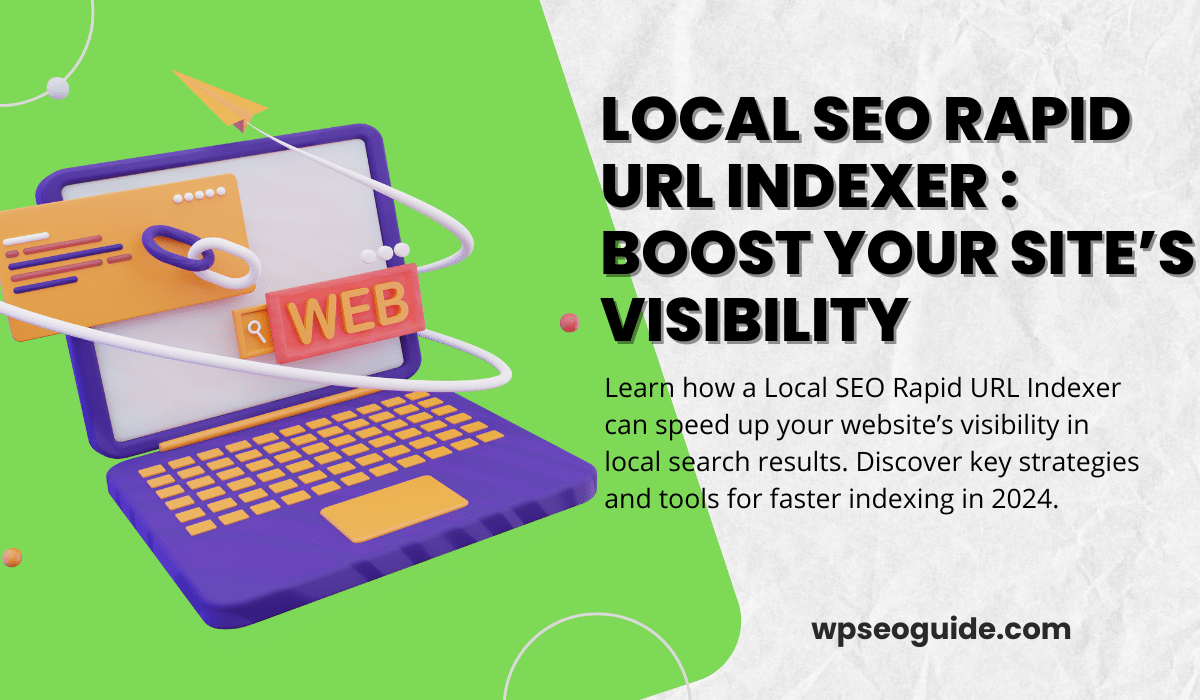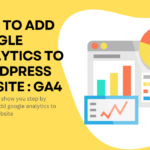Learn how a Local SEO Rapid URL Indexer can speed up your website’s visibility in local search results. Discover key strategies and tools for faster indexing in 2024.
Introduction
Are you tired of waiting forever for Google to notice your new web pages? In the fast-paced digital world, every second counts, especially for local businesses that compete to get seen first. Here’s some good news: you don’t have to sit back and wait for Google to index your site. By using a Local SEO Rapid URL Indexer, you can jump ahead of the line and make your pages visible in search results much faster!
Whether you’re launching a new service page or making time-sensitive updates, rapid URL indexing can make all the difference. In this article, we’ll dive into what a Local SEO Rapid URL Indexer is, why it matters, and how you can use it to boost your local search visibility in 2024
What is a Local SEO Rapid URL Indexer?
Let’s start with the basics. In simple terms, a URL indexer is a tool that helps search engines like Google find and index your website pages. This indexing process is crucial because until Google indexes your page, it won’t appear in search results—meaning potential customers won’t find you.
Now, when we talk about a rapid URL indexer, we refer to tools that significantly speed up this process. Typically, search engines can take days or even weeks to index new pages. But with rapid URL indexers, you can expect much faster results—sometimes within hours!
For local businesses, this can be a game-changer. Let’s say you just published a page promoting a holiday sale or added a new service location. The faster that page gets indexed, the quicker it can start appearing when customers search for businesses like yours. With a rapid URL indexer, you can ensure your updates get seen as quickly as possible, putting you ahead of competitors who are still waiting for Google to catch up.
Benefits of Using a Local SEO Rapid URL Indexer:
- Faster visibility: Get your new pages indexed quickly so they start ranking sooner.
- Stay ahead of competitors: React faster to changes in your business or market trends.
- Boost local relevance: The faster your site is indexed, the sooner you can show up in local search results where potential customers are actively searching for your services.
Why Speed Matters in Local SEO
In the world of local SEO, speed is everything. Imagine you’ve just launched a new page advertising your latest promotion. You want it to be visible in search results now, not two weeks from now. That’s where rapid URL indexing can make all the difference.
Why is Fast Indexing Crucial for Local Businesses?
When it comes to local SEO, timing is everything. Many businesses rely on seasonal promotions or time-sensitive content to drive customers. If your page isn’t indexed quickly, you could miss out on opportunities to reach people when they’re most likely to convert. Additionally, fast indexing can give you a competitive advantage. While your competitors’ pages are still waiting to be indexed, your content could already be ranking and driving traffic.
Here are some key reasons why speed is essential:
- Timeliness: Pages related to time-sensitive offers or promotions need to appear in search results immediately to maximize impact.
- Competitive edge: Getting your content indexed faster can lead to quicker ranking, which gives you an advantage over slower competitors.
- Better user experience: Fast indexing ensures your customers always have the most up-to-date information, such as current business hours or service offerings.
Top Tools for Rapid URL Indexing in 2024
Now that we’ve covered why rapid indexing matters, let’s talk about how you can achieve it. Here are some of the top tools that can help you speed up URL indexing:
1. Google Search Console
This is the most widely used tool for URL indexing. It allows you to submit new URLs directly to Google for indexing. While it may take a bit longer than third-party options, it’s free and reliable.
- Pros: Free, directly from Google, allows manual URL submission.
- Cons: Can be slower than other options, especially during peak times.
2. Rapid Url indexer
Rapid URL Indexer is an efficient tool designed to help SEOs and webmasters get their URLs indexed faster on Google without requiring Google Search Console access. It uses 100% safe methods and offers a credit-based, pay-as-you-go system, only charging for successfully indexed URLs. With features like automatic credit refunds for unindexed URLs, detailed indexing reports, and integrations such as Zapier and a WordPress plugin, Rapid URL Indexer is a powerful solution for improving website visibility, backlinks, and SEO performance.
Visit: Rapid URL Indexer for more details.

3. IndexNow
This protocol, supported by search engines like Bing and Yandex, allows instant indexing of URLs. It’s a great tool for getting your pages noticed faster by multiple search engines.
- Pros: Extremely fast, multi-search engine support.
- Cons: Not yet supported by Google.
4. Instant Indexing API (Google via RankMath)
For WordPress users, RankMath’s Instant Indexing API can be a game-changer. It integrates with Google’s indexing API and allows for near-instant submission of URLs.
- Pros: Very fast, easy integration with WordPress.
- Cons: Limited to certain types of content.
When choosing the right tool, consider your needs. For example, if you want Google to pick up your changes as fast as possible, the Instant Indexing API might be the way to go. For broader visibility across multiple search engines, IndexNow is a solid option.
Best Practices for Optimizing Your URLs for Rapid Indexing
Using a rapid URL indexer can work wonders, but only if your site is properly optimized for indexing. Follow these best practices to ensure your URLs are indexed as quickly as possible:
1. Make Sure Your Site is Crawlable
If search engines can’t easily crawl your site, they won’t be able to index it quickly. This means:
- Ensure proper site structure: Use a logical, organized site layout.
- Internal linking: Link important new pages from other high-traffic areas of your site.
2. Submit Sitemaps and Use Schema Markup
A sitemap is like a roadmap for search engines. Submitting one can help Google find your new pages faster. Schema markup also helps search engines understand your content better, leading to quicker indexing.
3. Use Social Media and Backlinks to Speed Things Up
Sharing new URLs on social media and earning backlinks from other websites can speed up the indexing process. Search engines recognize these signals and may prioritize indexing your content sooner.
4. Avoid Common Mistakes That Slow Down Indexing
Some factors that can slow down indexing include duplicate content, slow site speeds, and poor mobile optimization. Make sure your site is running smoothly to ensure quick indexing.
Local SEO Optimization Techniques to Boost Ranking After Indexing
To improve your rankings after indexing, focus on these local SEO techniques:
Ensure NAP consistency by keeping your business’s Name, Address, and Phone Number uniform across platforms and your website. Regularly update and optimize your Google My Business profile with accurate details, engaging photos, and fresh content. Use location-based keywords specific to your geographic area for improved local relevance. Build a network of high-quality local backlinks by collaborating with other businesses or community websites. These steps will enhance your local search visibility and improve your ranking potential
How to Monitor and Measure Indexing Success
To understand how well your rapid indexing efforts are working, it’s important to track your progress. Here’s how you can measure success:
- Google Search Console: Use the Index Coverage Report to check how many pages have been indexed and identify any issues.
- Analytics Tools: Use tools like Google Analytics to monitor changes in traffic after rapid indexing.
- Troubleshooting: If your page isn’t indexed as quickly as expected, check for crawl errors or other issues in your search console reports.
Conclusion
The speed at which your local business’s web pages are indexed plays a critical role in your visibility and rankings. Using a Local SEO Rapid URL Indexer, such as RapidURLIndexer, drastically reduces the wait time, helping your pages reach customers faster. Whether you’re introducing a new service or updating key information, quicker indexing translates to quicker results. By leveraging these tools and following best practices, you can give your local business a significant edge in the competitive SEO landscape.
Ready to boost your local SEO? Start using rapid URL indexing today!





